NPS analysis of HIV medications using PBS Data
Page last updated: 24 March 2022
Drug utilisation sub-committee (DUSC)
October 2021
Abstract
Purpose
DUSC requested a review of the utilisation of antiretroviral medicines used for the treatment of Human Immunodeficiency Virus (HIV) and for pre-exposure prophylaxis (PrEP) of HIV at its June 2021 meeting. The analyses in this report are for the antiretroviral medicines used to treat HIV and are based on PBS data.
Antiretroviral medicines may also be called antiretroviral therapies or ART.
Data Source / methodology
Data for all medicines used for the treatment of HIV antiretroviral medicines listed on the PBS were extracted from the Services Australia PBS supplied prescriptions database from January 2013 to December 2020.
Key Findings
- Between 2016 and 2020, the number of antiretrovirals dispensed on the PBS has been stable at approximately 130,000 prescriptions per year. Government expenditure on antiretroviral medicines in 2020 was $216.9 million, down from $221.4 million in 2016.
- The combination antiretroviral medicines incorporate different classes of antiretrovirals within a single tablet. They are the class of antiretrovirals most commonly dispensed and most costly for government. Their use continues to increase thanks to a rapid uptake of bictegravir + tenofovir alafenamide + emtricitabine (Biktarvy) since its listing in March 2019. In 2020 bictegravir + tenofovir alafenamide + emtricitabine was dispensed 37,681 times accounting for 29.1% of all antiretroviral prescriptions that year and $74.1 million or 34.1% of all government expenditure.
- In 2020, 23,179 patients were dispensed at least one antiretroviral medicine. This is a 24% increase in the number of patients dispensed antiretrovirals since 2015.
- The number of patients using combination antiretrovirals has increased year on year while the number of patients using other classes of antiretrovirals has fallen. In 2020, there were:
- 18,859 patients dispensed combination antiretrovirals;
- 4843 patients dispensed nucleoside and nucleotide reverse transcriptase inhibitor (NRTIs);
- 3847 patients dispensed integrase strand transfer inhibitors (INSTIs);
- 2070 patients dispensed HIV protease inhibitors (HIV-PIs);
- 688 patients dispensed non-nucleoside reverse transcriptase inhibitors (NNRTIs); and
- 263 patients dispensed entry inhibitors.
- The most commonly used individual antiretroviral medicines in 2020 were:
- bictegravir + tenofovir alafenamide + emtricitabine (Biktarvy; combination antiretroviral) dispensed to 9119 patients;
- abacavir + dolutegravir + lamivudine (Triumeq; combination antiretroviral) dispensed to 4423 patients;
- emtricitabine + tenofovir alafenamide (Descovy; NRTI) dispensed to 3292 patients; and
- elvitegravir + cobicistat + emtricitabine + tenofovir alafenamide (Genvoya; combination antiretroviral) dispensed to 2970 patients.
- Since 2016, the number of patients newly started on antiretrovirals each year has fallen from 1742 patients to 1000 patients in 2020, in line with the decreasing incidence of HIV notifications in Australia.
- Patients newly starting antiretroviral medicines are predominately dispensed combination antiretrovirals. In 2020, the combination antiretroviral that the most patients were started on was bictegravir + tenofovir alafenamide + emtricitabine (Biktarvy). There were 623 patients started on this medicine which was 62.3% of all patients newly started on antiretrovirals in 2020.
- The majority of patients dispensed antiretroviral medicines are male and living in major cities. Approximately half are aged 50 years or older.
- In 2020, 1.1% of patients dispensed an antiretroviral medicine had a CTG indicator, identifying them as being an Aboriginal or Torres Strait Islander.
- This study found no evidence that dispensing of antiretroviral medicines had been affected by the COVID-19 pandemic during 2020.
- There were 1653 patients, or 7.1% of patients dispensed at least one antiretroviral during 2018 and 2019, who were dispensed regimens containing two NRTIs. Australian guidelines note that this regimen should not be offered at any time.
- There were a small numbers of patients who were dispensed non-HIV medicines which are contraindicated or to be used with caution in people taking some antiretroviral medicines.



